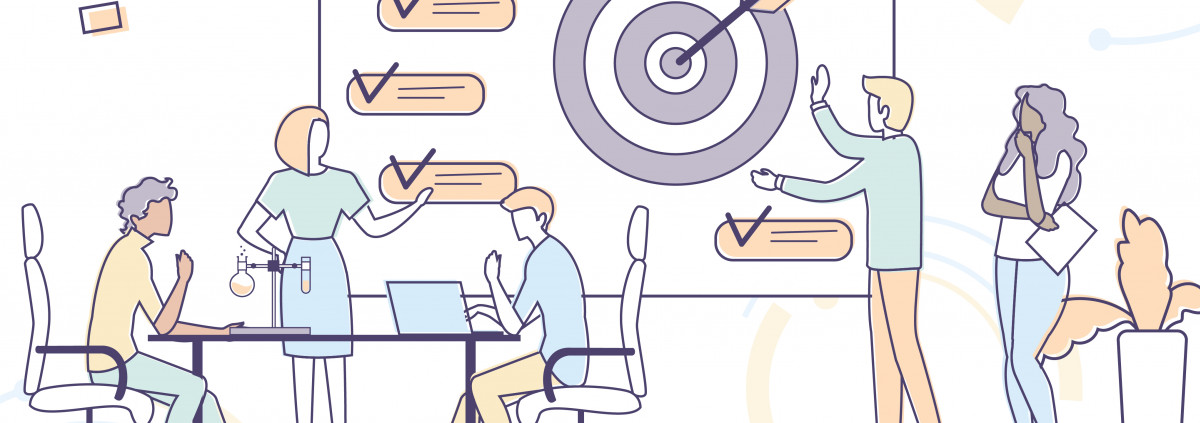Context
The Decentralised Development Lab is a 10 month long structured support programme financed by the Federal Ministry of Economic Cooperation and Development (BMZ), implemented by the German Cooperation (GIZ). The programme provides methodological, subject matter and financial support to international teams for the development of innovative solutions to concrete challenges impeding the sustainable development of their region, federal state or country.
Within Challenge Lab I and II an international group of “challenge owners”, representing actors from decentralised levels of state, define a relevant challenge that they want to see tackled.
Following Challenge Lab I and II, an international team of “solution providers”, with actors from the private sector, academia, and civil society, will propose innovative solutions to tackle the challenge.
Challenge
The concrete challenge question for this challenge is: How can we support a startup and innovation climate that develops sustainable business solutions?
The four participating federal states/partner countries (Brandenburg, Rhineland-Palatinate, Peru and Rwanda) face similar challenges to foster such an innovative climate in their respective rural areas. They deal with this challenge since the regions are oriented around a metropole region that pulls most of the entrepreneurial environment away and that makes it difficult to build up a healthy startup ecosystem themselves.
Hence, in the course of this challenge the different regions should be enabled to create sustainable entrepreneurial ecosystems in rural areas. Thereby, a valuable exchange between the different regions can be created and the foundation for a fruitful North-South and South-South network between entrepreneurs can be laid.
More information about the Challenge Labs can be found in the flyers below!
Who are the participants of the workshop series?
The Decentralised Development Labs invites all representatives of state, administration, academia, or civil society
- with knowledge about challenges their constituencies and/or institutions are facing related to the challenge topic
- with an institutional interest in getting the challenge addressed
So far, the following institutions participate:
- Decentralisation unit, office of the prime minister – Peru
- Ministry of Finance and for European Affairs – Brandenburg
- Chamber of Industry and Commerce Potsdam – Brandenburg
- Ministry of Economic Affairs, Traffic, Agriculture and Winery – Rhineland-Palatinate
- University of Koblenz-Landau – Rhineland-Palatinate
- INES Ruhengeri - Rwanda
What is the aim of the workshops?
- Identifying a challenge that all participants would like to tackle
- Defining a challenge question
- Formulating an informative description of the challenge that allows potential solution providers to understand the challenge
Workshop Agenda
In Challenge Lab I participants discuss and analyse different perspectives and challenges with the support of a moderator and subject matter experts. Building up on these discussions, in Challenge Lab II participants select the challenge most relevant to all and formulate a challenge question & challenge description.
|
CEST and ACT |
PET |
Agenda |
|
3 pm |
8 am |
Welcome & Agenda |
|
3:05 pm |
8:05 am |
Application of selection criteria to the list of challenges (part II) |
|
4:20 pm |
9:20 am |
Discussion & selection of a challenge |
|
4:50 pm |
9:50 am |
Break |
|
5:00 pm |
10:00 am |
Formulation of challenge question |
|
6:20 pm |
11:20 am |
Next steps |
|
6:30 pm |
11:30 am |
End |
To join the Challenge Lab series...
If you want to participate in this event, please click on the “enroll” button on the top right of this page and provide your name and email address. You can either join the video conference directly or download a save-the-date for your calendar. A personalized link will be provided allowing you to come back to the event page and join the video conference at any time.
If you have any questions regarding the content of this workshop or the Decentralised Development Lab in general, please contact friederike.barthe-carpentier@giz.de.
If you have any technical questions, please contact julius.nebel@giz.de
